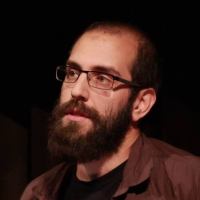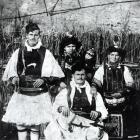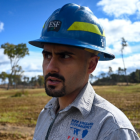The residents of rural Greece were no strangers to transhumant pastoralism. The comings and goings of shepherds followed by their bleating beasts have been a common sight for them, as the practice was embedded in the fabric of the countryside from time immemorial. But it was not until 1913 when transhumant pastoralism became an issue that needed to be tackled.
It was then that Greece officially incorporated southern Macedonia—formerly part of the Ottoman Empire—after the conclusion of the second Balkan War, expanding northwards to share borders with Albania, Serbia, and Bulgaria. Even though Greek state-agronomists early on highlighted the agricultural and economic potential of the province, they also stressed a number of problems that should be settled. The most persistent of those was that the Greek administration had to engage in a remodeling process of the land-use practices that were predominant in Macedonia during the Ottoman era in order for the new Greek agricultural model to fit the economic vision the state had in store for the province.
One of these firmly established practices was the symbiosis that had developed between the ciftlik estates—namely large private estates intended for agricultural production—and transhumant pastoralists who would rent large extents of land by ciftlik owners to winter over upon. When Macedonia passed onto the Greek state however, that system of property was quickly abolished, which paved the way for the expropriation of the ciftlik estates.
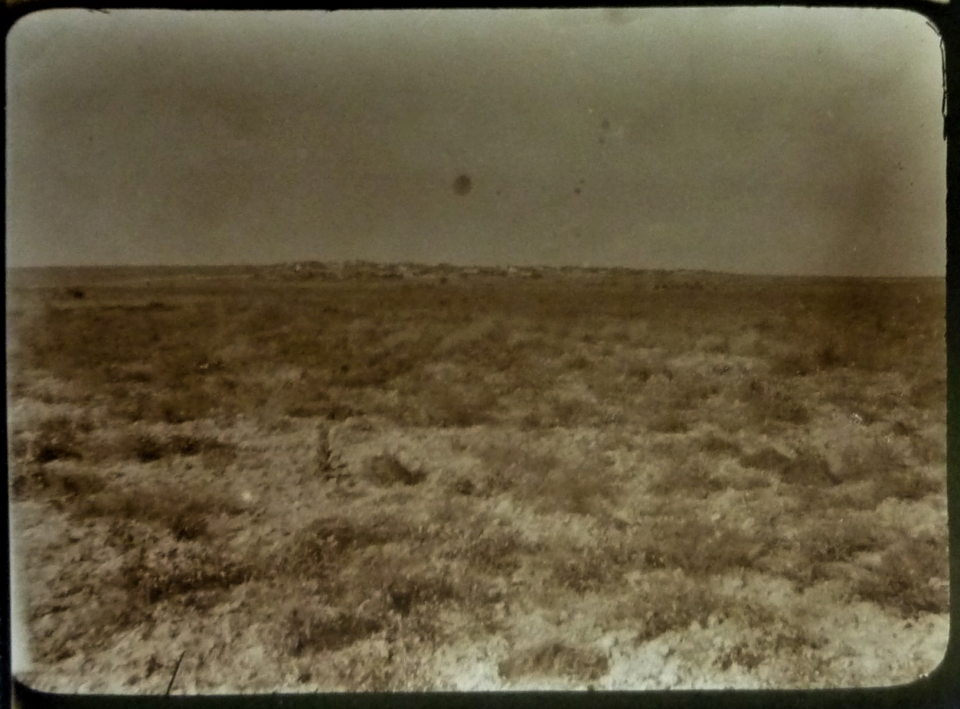
Photograph of Georgios Oikonomou, depicting the vast, “ugly and poor” plain of Giannitsa, used as grazing grounds for the nomadic shepherds. Photograph by Georgios Oikonomou, 1914–1915.
Photograph of Georgios Oikonomou, depicting the vast, “ugly and poor” plain of Giannitsa, used as grazing grounds for the nomadic shepherds. Photograph by Georgios Oikonomou, 1914–1915.
Courtesy of the Archeological Society at Athens.
Digitized by George L. Vlachos.
 This work is licensed under a Creative Commons Public Domain Mark 1.0 License.
This work is licensed under a Creative Commons Public Domain Mark 1.0 License.
Despite expectations, during the first years of Greek rule the transhumant pastoralists of Macedonia were left undisturbed. Pastoralism was in fact praised by some agronomists as an important source of income. There was however, some underlying reluctance developing between the state and the shepherds, as the latter feared that the interference of the state in their affairs was only a matter of time. This reluctance was what the archeologist Georgios Oikonomou encountered during his archeological mission in central Macedonia.

The archeological site at Pella. Photograph by Georgios Oikonomou, 1914–1915.
The archeological site at Pella. Photograph by Georgios Oikonomou, 1914–1915.
Courtesy of the Archeological Society at Athens.
Digitized by George L. Vlachos.
 This work is licensed under a Creative Commons Public Domain Mark 1.0 License.
This work is licensed under a Creative Commons Public Domain Mark 1.0 License.
Oikonomou had been commissioned in 1915 by the Archeological Society in Athens to unearth the ruins of the ancient Macedonian kingdom in Pella and birthplace of Alexander the Great. Unbeknownst to the archeologist, the digging began on land that had been rented by transhumant pastoralists. Although they were supposed to be away, in their preordained high-altitude pastures, the pastoralists had been stuck in the lowlands due to the declaration of the First World War and were unable to move. They did not take kindly to the archeologists meddling with the already depleted meadows. One September night in 1915, they broke into the excavation site and “indecently smudged” its entrance, shattering a few ancient columns along the way, as Oikonomou himself recounted in his log.
Another important parameter should be introduced at this point, since this bilateral suspicion was not only economically-driven; it was also about national allegiances. The transhumant pastoralists of Macedonia could be roughly divided in two categories: those of (Kutzo) Vlach origin and those of Sarakatsan origin. While the latter are reported at the time to be a group holding strong pro-Greek sentiments, the former’s loyalty to the Greek cause was not always taken for granted and they were at times regarded as agents of foreign causes in the province, most commonly the Romanian one. Even though many of them spoke Greek and resided in Greece, the Greek state had repeatedly attacked the Vlach shepherd’s interests to the point where they had been alienated from the national project.
The relationship between the pastoralists and the state was exacerbated and eventually broke down after 1923, when the population exchange agreement between Greece and the Turkish Republic brought hundreds of thousands of Orthodox refugees from Anatolia into southern Macedonia. From 1923 to 1930, in an agonizing effort to find enough arable land to grant the refugees, the Greek state disregarded the needs of the pastoralists and swiftly appropriated a large percentage of the lowland pasturelands of Macedonia, depriving many shepherds of the means to sustain their herds.
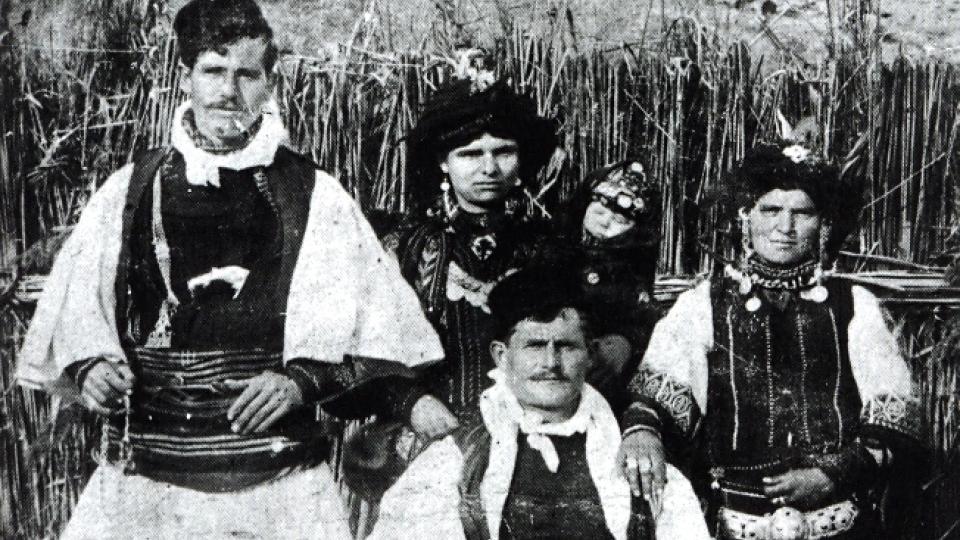
Sarakatsanoi Tseligkes, one of the major subgroups of the nomadic shepherds of southern Macedonia and Thrace.
Sarakatsanoi Tseligkes, one of the major subgroups of the nomadic shepherds of southern Macedonia and Thrace.
Unknown photographer, 1938.
Accessed via Wikimedia on 29 July 2020. Click here to view source.
 This work is licensed under a Creative Commons Public Domain Mark 1.0 License.
This work is licensed under a Creative Commons Public Domain Mark 1.0 License.
Restricted to the high altitude public-land pastures, the pastoralists were about to withstand another attack on their interests, which particularly affected those who maintained goat herds. This time it was perpetrated by the state foresters of southern Macedonia and echoed similar discourses and publications that at the time were prominent throughout Europe. During the 1930s, studies concerning the detrimental effects of transhumant husbandry on Greek forests rose sharply:
A superficial research would keep us from trying to find decorative adjectives and would restrict ourselves to using only one. “Shepherd the Forest-destroyer” … . Truly the biggest scourge of the Greek countryside is nomadic husbandry [original emphasis].
This is what Anastasios Kofiniotis reported in 1933 in his state-funded treatise concerning Greek forests. He, along with several other state foresters, spearheaded an assault, which described transhumant pastoralists as remnants of a past that should no longer exist, ultimately promoting the introduction of restrictive legislation against them.
With all their choices played out, the transhumant pastoralists who had operated through centuries in Macedonia were left with only a few options to consider. Some fled to other states with their herds. Some others followed the way of the Orthodox refugees of Anatolia, leaving their transhumant life behind and becoming settled livestockers or farmers. Either way, from 1941 onward, southern Macedonia’s pastures had been broken in by the iron plough, and the shepherd’s crook was an unlikely sight.
How to cite
Vlachos, George L. “A Complicated Relationship: The Transhumant Pastoralists of Macedonia and the Greek State, 1913–1936.” Environment & Society Portal, Arcadia (Summer 2020), no. 29. Rachel Carson Center for Environment and Society. https://doi.org/10.5282/rcc/9075.
ISSN 2199-3408
Environment & Society Portal, Arcadia
 This work is licensed under a Creative Commons Attribution 4.0 International License.
This work is licensed under a Creative Commons Attribution 4.0 International License.
2020 George L. Vlachos
This refers only to the text and does not include any image rights.
Please click on the images to view their individual rights status.
- Agricultural Bank of Greece. Agrotiki Trapeza Tis Ellados, Apologismos Ergasion 1932 [Agricultural Bank of Greece, work report 1932]. Athens: Agrotiki Trapeza tis Ellados, 1933.
- Duffy, Andrea E. Nomad's Land: Pastoralism and French Environmental Policy in the Nineteenth-Century Mediterranean World. Lincoln: University of Nebraska Press, 2019.
- Kofiniotis, Anastasios. Dasi kai Cheimarroi [Forests and torrents]. Athens: Ethniko Typografeio, 1933.
- Oikonomou, Georgios. Achaiologiko Imerologio Pellas [Pella’s archeological log]. Athens: Archeological Society at Athens, 1914–1915.
- Syrakis, Dimosthenis. Nomadiki, Monimos kai Georgiki Ktinotrofia en Elladi [Nomadic, settled and agricultural husbandry in Greece]. Athens: Greek Agricultural Society, 1925.


